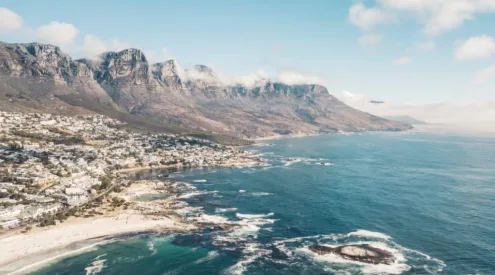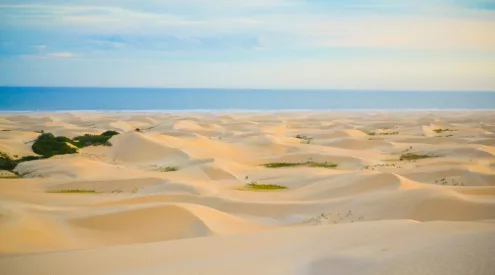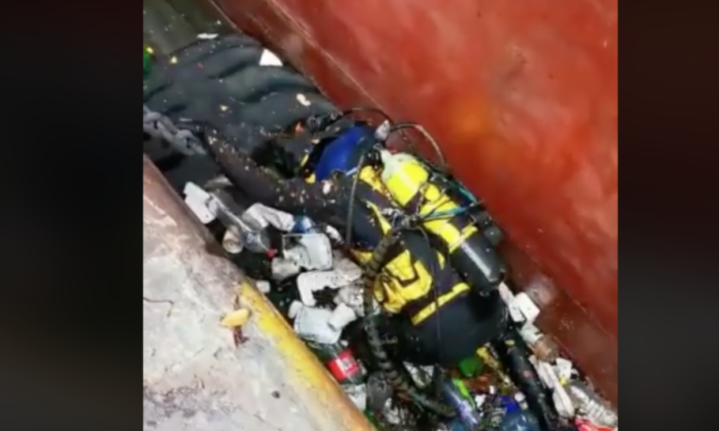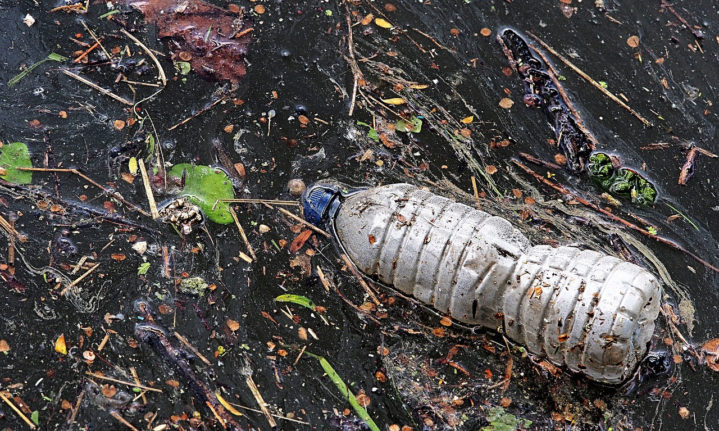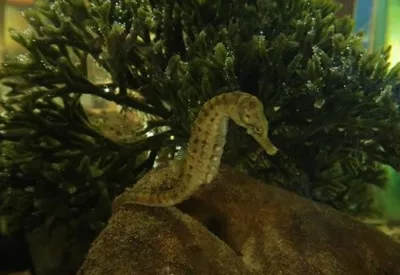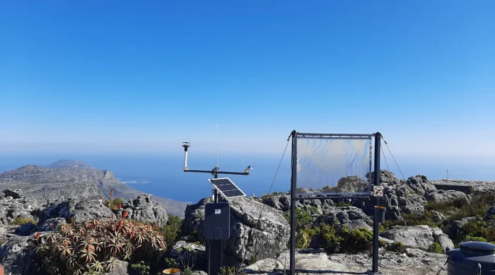Shocking footage of a scuba diver attempting to exit the waters in the Durban Harbour surrounded by plastic and polystyrene has surfaced on social media.
The Clean Surf Project, a non-profit organisation that aims to raise awareness of the negative impacts of plastic and polystyrene on marine life and humans shared footage of a diver swimming through plastic littering the Indian Ocean waters. Footage of the incident was shared on December 28 2018.
In the video uploaded to social media, the scuba diver can be seen struggling to exit the waters. The diver attempts to plough through the surrounding waste in which various plastic bottles can be seen.
“This is Durban Harbour this morning 😭,” the organisation announced on its Facebook page using the ‘crying’ and ‘broken-heart’ emojis. “It’s all well and fine to celebrate the holidays but at what cost?! This diver can hardly move through the plastic and polystyrene trash that is floating in the water. Imagine what the fish and marine birds are experiencing 💔.”
The diver in the video, Darren Whitfield, also commented on the post, providing insight into his attempt to get out of the water.
“The video didn’t catch me leopard crawling over the trash to get the tyre, and I could not go under it due to too much rubbish under me. This must stop! No one is cleaning the harbour except a small boat with a net that we hardly see anyways,” he said.
Awareness and restrictive measures surrounding the impact of plastic and polystyrene waste in our oceans has become one of the main agendas for environmental organisations.
The World Wildlife Fund South Africa shared a list of the top 10 ‘plastic offenders’ in the country, with plastic bags taking first place and take-away packages featuring as another main culprit.
Impact of plastic waste on oceans
Plastic and waste thrown into the oceans poses major threats to marine biodiversity as various species such as turtles, fish and dolphins ingest plastic or are found caught in it, unable to free themselves.
Over 100,000 marine animals die annually due to plastic entanglement or ingestion.
It is not uncommon to see images of marine life struggling with or caught in plastic, but as harrowing as some of these visuals can be, it is evidence of the detriments of plastics and waste.
These images sadly serve as incentives for individuals to curb their use of plastic by using more reusable and renewable items instead.
The Two Oceans Aquarium reported in June 2018 that there are more than 51 trillion pieces of microplastics in the ocean.
Once plastic enters our oceans it does not biodegrade and often breaks down into the smaller microplastics that are consumed by marine wildlife. In order to ensure the longevity of our beautiful oceans, it is up to each of us to do our part to reduce the use of plastics and non-recyclable items.
Featured image from Pixabay

